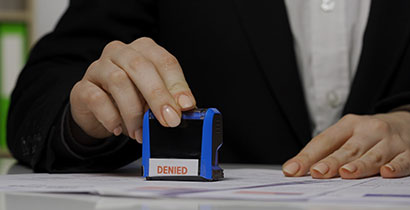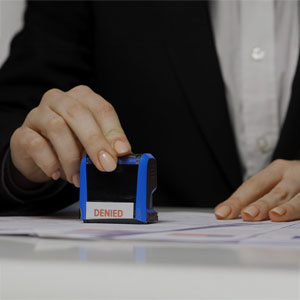
 How Do I Begin The Appeal Process In Florida?
How Do I Begin The Appeal Process In Florida?
To begin the appeal process in Florida after a denial of a Cancellation of Removal application, you need to follow these steps:
File A Notice Of Appeal (Form EOIR-26)
This form must be submitted to the Board of Immigration Appeals (BIA) within 30 days of the immigration judge’s decision.
Specify Reasons For The Appeal
The Notice of Appeal must outline the legal grounds for the appeal, focusing on any potential errors made by the Immigration Judge in their decision.
Pay The Filing Fee Or Request A Fee Waiver
A filing fee is required unless you request and qualify for a fee waiver. Make sure to submit this with your appeal form.
Once filed, the BIA will review the case and can either uphold, reverse, or remand it back to the Immigration Judge for further consideration.
What Are Common Reasons Cancellation Of Removal Applications Are Denied?
Common reasons for the denial of cancellation of removal applications include:
Failure To Establish Good Moral Character
Applicants must demonstrate good moral character for the required period, typically ten years, before applying.
Lack Of Extreme Hardship
Applicants must show that their removal would cause extreme hardship to qualifying U.S. citizens or lawful permanent resident family members, such as a spouse, child, or parent. Failure to do so could be grounds for denying an application.
Having A Criminal Background
Having committed certain criminal offenses makes applicants ineligible, including aggravated felonies and crimes involving moral turpitude.
Failure To Prove Extreme Cruelty Or Battery
In cases under the Violence Against Women Act (VAWA), applicants must provide sufficient evidence of abuse or battery by a U.S. citizen or lawful permanent resident.
Insufficient Evidence
The lack of adequate documentation or testimony to support the claims made in the application can lead to denial.
Incorrect Interpretation Of The Law
Sometimes, the immigration judge may misapply or misinterpret the legal standards, which could result in an improper denial.
Can I Remain In Florida While My Appeal Is Pending?
You can generally remain in Florida—or elsewhere in the U.S. at that—while your appeal is pending. Filing a Notice of Appeal with the BIA typically results in an automatic stay of the deportation order, meaning you are not required to leave the country while the appeal is under review.
However, there are exceptions, especially in cases involving certain criminal convictions that may not qualify for a stay. Additionally, you must comply with any reporting requirements set by Immigration and Customs Enforcement (ICE) during the appeal process.
What Happens During The Appeal Hearing?
During the appeal hearing before the Board of Immigration Appeals, the process primarily consists of a review of the existing record from the original Immigration Court hearing. The BIA does not usually accept new evidence or hear witness testimony. Instead, it evaluates whether the immigration judge made any legal errors when applying the law to your case.
Your attorney will typically submit a legal brief that highlights the mistakes in the judge’s decision. The BIA may ask for additional written arguments from both sides.
Based on the specific circumstances of the case, the BIA will either issue a written decision or, in some cases, schedule a hearing to discuss legal points further. The majority of appeals are decided based solely on written submissions.
Can I Appeal Beyond The Board Of Immigration Appeals?
If the BIA denies your appeal, you can take your case to the U.S. Court of Appeals. For cases in Florida, this would be the Eleventh Circuit Court of Appeals. You must file a petition for review within 30 days of the BIA’s decision.
At this point, the federal court will evaluate whether the BIA made legal errors or violated your constitutional rights. If the court rules against you, you may have the option to request a rehearing or, in rare cases, petition the U.S. Supreme Court for further review.
Can I Apply For Other Forms Of Relief While Waiting For My Appeal?
You may be able to apply for other forms of relief, such as asylum, withholding of removal, or adjustment of status—assuming you meet the eligibility criteria—while waiting for your appeal.
Additionally, you could request prosecutorial discretion or administrative closure in some cases, which may delay or pause removal proceedings. It’s important to consult with an immigration attorney to explore all possible options and determine the best course of action based on your specific situation.
How We Support Clients Like You
I place a strong emphasis on safeguarding my clients by maintaining clear and open communication, ensuring they understand their rights, the legal process, and potential outcomes.
I carefully gather all necessary evidence, build compelling legal arguments, and prepare them for each phase of their case. I also strive to offer compassionate and personalized support and, in doing so, reduce the anxiety and uncertainty that often come with immigration proceedings.
On a personal level, this work is deeply important to me because I recognize the life-changing impact that a positive result can have for so many people and their families.
Knowing what’s at stake for immigrants motivates me to strive for justice and fairness, making sure my clients receive the best possible outcome. This work isn’t just about winning cases—it’s about protecting futures and making a meaningful and lasting difference in people’s lives.
Still Have Questions? Ready To Get Started?
For more information on How To Appeal A Denied Cancellation Of Removal Application, an initial consultation is your next best step. Get the information and legal answers you are seeking by calling (305) 907-6151 today.
